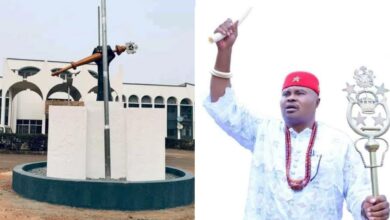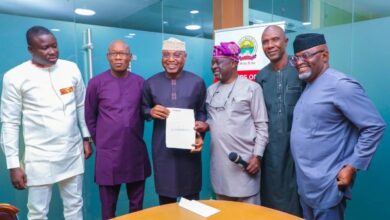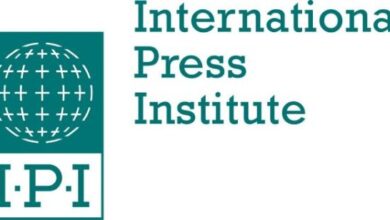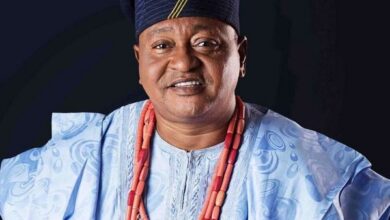Stealing or Serving: The Question Bank CEOs, Public Servants, General Overseers Must Answer

In every generation, there comes a leadership team whose vision transcends politics and speaks directly to the economic destiny of a people.
For Anambra State, the joint candidacy of Prince Nicholas Ukachukwu and Senator Uche Ekwunife, under the All Progressives Congress (APC), represents such a turning point.
Beyond the campaign rallies and political rhetoric, this ticket carries the promise of economic transformation rooted in business acumen, foresight, and developmental vision.
Anambra has long been celebrated as Nigeria’s economic and commercial nerve centre of the South-East.
From the bustling markets of Onitsha to the industrial hubs of Nnewi and the entrepreneurial vibrancy of Awka, Anambra’s people are known for their resilience and ingenuity.
Yet, for decades, the state’s economic potential has remained largely untapped, hampered by infrastructural deficits, policy inconsistencies, and the absence of coordinated industrial strategy.
The Ukachukwu–Ekwunife ticket arrives not merely to govern but to architect an economy that reflects the industrious spirit of Ndi Anambra.
Prince Nicholas Ukachukwu: The Business Builder
Prince Nicholas Ukachukwu, popularly known as Ikukuoma, embodies the mindset of an economic strategist.
A successful businessman, he built his wealth not through shortcuts but through years of calculated investments across real estate, construction, and finance.
His ventures have created jobs, attracted investors, and demonstrated the potential of turning vision into enterprise.
What sets Prince Ukachukwu apart is not only his success but also his foresight. He understands that for Anambra to prosper, the government must not act as a mere regulator but as a catalyst for enterprise.
His economic philosophy is clear: create the enabling environment, provide infrastructure, and watch Anambra’s entrepreneurs unlock unimaginable wealth.
His business acumen, combined with a deep commitment to social responsibility, places him in a unique position to lead an economic renaissance in the state.
Senator Uche Ekwunife: The Policy Advocate
Alongside Ukachukwu stands Senator Uche Ekwunife, a lawmaker whose record demonstrates both economic awareness and grassroots connection.
In Abuja, she has consistently pushed for legislation that addresses business growth, infrastructure development, and inclusive policies for women and youths.
Senator Ekwunife’s strength lies in her ability to bridge policy and people.
She recognises that economic transformation is not merely about figures on a budget sheet but about ensuring that the market woman, the young graduate, and the small-scale farmer can all find prosperity in the state’s economic framework.
Her voice in the Senate has amplified issues of trade, small business funding, and infrastructural investment.
As deputy governor, she would bring these insights home to create people-focused policies that turn Anambra’s economic energy into measurable growth.
Industrialising Anambra: A New Economic Blueprint
Industrialisation is the bedrock of sustainable economic growth. Historically, regions that have embraced manufacturing and industrial policies have seen long-term prosperity.
From South Korea to Singapore, the lesson is clear: a people’s energy must be channelled into production, not just consumption.
For Anambra, the Ukachukwu–Ekwunife ticket has the capacity to replicate such models.
1. Reviving Nnewi as the “Japan of Africa”
Nnewi, once heralded for its entrepreneurial genius in auto parts manufacturing, remains a sleeping giant.
With targeted policies, tax incentives, and modern infrastructure, the ticket plans to revitalise Nnewi into a full-scale industrial hub, attracting both local and foreign investors.
2. Expanding Onitsha as West Africa’s Trade Gateway
Onitsha, already one of Africa’s largest markets, can be transformed into a global trade destination.
Investments in river ports, logistics facilities, and digital trade systems will reduce bottlenecks, expand exports, and create jobs.
3. Agro-industrial Development
With fertile lands across Anambra North and Central, agro-processing plants will link farmers directly to industries, cutting waste and boosting value chains.
This not only ensures food security but also creates export opportunities.
Empowering Entrepreneurs: The Anambra Advantage
Entrepreneurship is at the heart of Anambra’s identity. A 2019 survey by the African Development Bank revealed that Anambra has one of the highest concentrations of micro, small, and medium enterprises (MSMEs) in Nigeria.
Yet, many of these businesses remain informal, underfunded, and stifled by poor infrastructure.
Ukachukwu and Ekwunife’s strategy for empowering entrepreneurs rests on three pillars:
Access to Finance: Establishing state-backed funds and partnering with banks to provide low-interest loans tailored to small businesses.
Skills Development: Creating training centres in partnership with universities and vocational schools to equip youths with both technical and digital skills.
Infrastructure for Growth: Building industrial clusters with power supply, internet connectivity, and transport systems to reduce the cost of doing business.
By unlocking the energy of MSMEs, the duo intends to create a ripple effect that touches every sector of the economy.
Creating Jobs: From Policy to Reality
Unemployment is one of Anambra’s biggest challenges. According to Nigeria’s National Bureau of Statistics (2023), youth unemployment remains above 40% nationwide, with states like Anambra feeling the pressure due to a growing young population.
The Ukachukwu–Ekwunife plan sees job creation not as an afterthought but as the natural outcome of strategic investment.
Infrastructure Jobs: Road construction, housing estates, and public works will immediately absorb thousands of youths into productive labour.
Industrial Jobs: Revitalised factories in Nnewi and agro-processing plants in Anambra North will create long-term employment opportunities.
Digital Jobs: By promoting ICT hubs in Awka and beyond, the state will position itself as a centre for outsourcing, fintech, and digital entrepreneurship.
Public Service Efficiency: Reforms will professionalise the civil service, creating merit-based opportunities for graduates eager to serve.
This comprehensive approach ensures that job creation is not only sustainable but also diverse, touching multiple sectors.
Investor-Friendly Policies: Anambra Open for Business
One of the greatest strengths of the Ukachukwu–Ekwunife ticket is its investor-friendly orientation. Both leaders understand that private capital is essential for driving growth.
As such, their administration promises to create an environment where investors feel secure, valued, and supported.
1. Ease of Doing Business: Cutting through red tape, digitalising government services, and ensuring transparent business registration processes.
2. Public-Private Partnerships (PPP): Opening key sectors like energy, transport, and housing to private investors through PPP models.
3. Security as Investment Catalyst: Strengthening local security infrastructure to protect lives and investments, ensuring confidence in long-term ventures.
4. Diaspora Engagement: Encouraging Ndi Anambra abroad to bring capital, skills, and networks home through targeted incentives.
These policies will position Anambra not only as Nigeria’s commercial hub but also as a beacon of investment in West Africa.
A Vision Anchored in Research and Global Best Practices
The vision of Ukachukwu and Ekwunife is not based on guesswork but on global lessons and local realities.
Studies by the World Bank and United Nations have consistently shown that states which combine industrialisation with entrepreneurship support achieve faster poverty reduction.
For example, Vietnam’s transformation from a war-torn country to a manufacturing hub offers lessons in policy consistency and export-oriented growth.
Similarly, Rwanda’s ease of doing business reforms demonstrate the power of governance in attracting investment.
The Ukachukwu–Ekwunife ticket promises to adapt these best practices to Anambra’s context, drawing from history, but tailoring solutions to the unique strengths of Ndi Anambra.
The Human Face of Economic Policy
While the numbers and policies matter, what makes this ticket stand out is its human face.
Ukachukwu’s philanthropy has shown that wealth must serve people, while Ekwunife’s grassroots politics proves that governance must touch lives directly.
Their economic vision is not about abstract GDP figures but about ensuring that the teacher in Aguata, the trader in Onitsha, the auto dealer and technologist in Nnewi, the farmer in Ayamelum, and the graduate in Awka all find opportunities to thrive.
It is an economy with a human soul.
Architects of a New Dawn
Anambra stands at a defining moment. For too long, its economic genius has been stifled by lack of infrastructure, policy inconsistency, and political distractions.
But with Prince Nicholas Ukachukwu and Senator Uche Ekwunife, the state has before it leaders who are not only politicians but architects of prosperity.
Their business acumen, economic foresight, and developmental vision form the blueprint for an Anambra that is industrialised, entrepreneurial, and job-rich.
This is not just about winning an election, it is about designing a future where Ndi Anambra can dream bigger, build stronger, and live better.
In this vision, Ukachukwu and Ekwunife are not merely candidates; they are economic architects ready to construct a prosperous Anambra.
Post Views: 78





